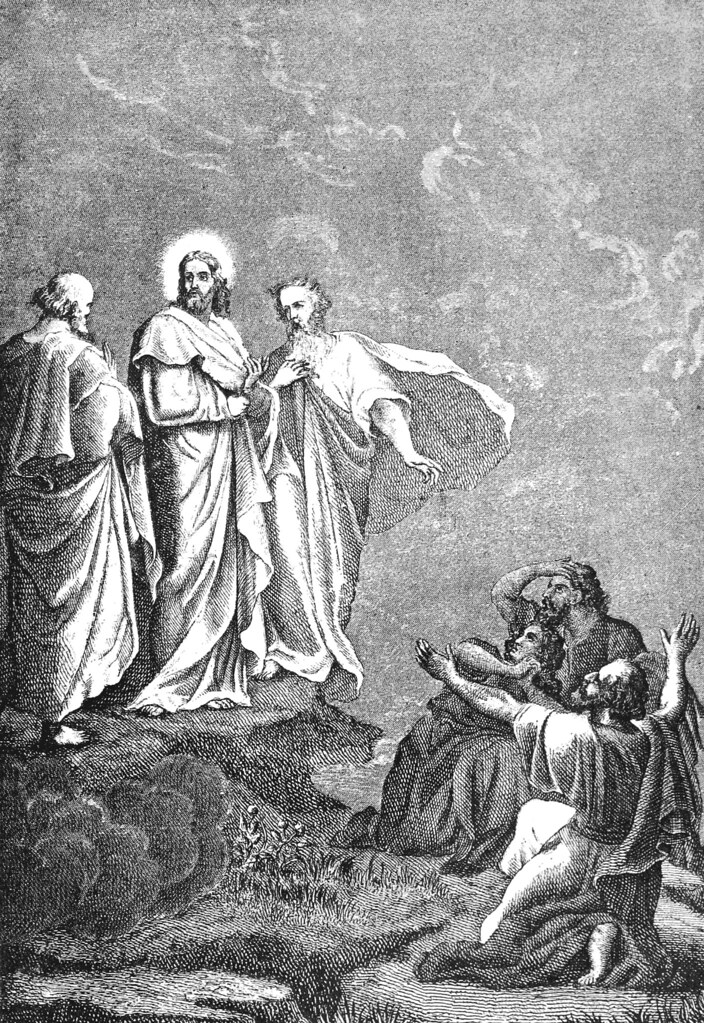An exploration of Isaiah 40 and its prophecies of comfort, as well as its connection to Jesus message of redemption and restoration.
Photo by Aleksandr Ledogorov on Unsplash | Commercial use allowed
Overview of Isaiah 40
The second half of the Book of Isaiah, particularly in chapters 40 to 66, stands as a beacon of hope and restoration for the exiled community in Babylon. The prophet Isaiah’s words echo across the centuries, resonating with the promise of comfort and the restoration of God’s people, illustrating the enduring nature of his message. This section encapsulates the essence of God’s abiding love and faithfulness, as it seeks to console and uplift the spirits of those who found themselves in the depths of despair and displacement.
Isaiah 40-66 is a profound testament to the unwavering nature of God’s promises. These chapters serve as a source of spiritual nourishment and encouragement, emphasizing the profound theological arguments and doctrines that underpin the belief in God as the ultimate creator and redeemer. The enduring relevance of this section is not merely historical; it is a foundational cornerstone of Christian theology, offering timeless comfort and hope to believers in every age. The prophecies in this section are not confined to a specific moment in time but serve as an eternal wellspring of divine reassurance and restoration.
The prophecies in Isaiah 40-66 were not limited to a local context but were intended to transcend the immediate circumstances of the Babylonian exiles. They were designed to bring hope and reconciliation, offering a glimpse of the unyielding love and compassion of God for His people. Through Isaiah’s words, the exiles were reminded of the eternal nature of God’s covenant and His unchanging promise to bring comfort and restoration to those who place their trust in Him.
 Prophecies of Comfort in Isaiah 40
Prophecies of Comfort in Isaiah 40
Isaiah 40 serves as a profound source of comfort and hope, particularly for the exiled community in Babylon. The prophecies in this section are directed at the Babylonian exiles, Zion, and the Judean community, aiming to bring hope and reconciliation. Through the powerful imagery of God as the creator and redeemer, the text reassures the exiles that their current circumstances are not beyond the scope of God’s redemption. This is a powerful message of comfort, assuring the exiles that their situation is not hopeless and that restoration is within reach.
Moreover, Isaiah 40’s emphasis on monotheism as a total and absolute phenomenon, open to foreigners who are promised access to the Temple and divine service, is a testament to the inclusive nature of God’s comfort and grace. This portrayal not only brings solace to the exiled community but also extends a message of hope to all people, regardless of their background or circumstances. The promise of divine access and service to foreigners signifies that God’s comfort is not limited by borders or societal distinctions, but rather it is extended to all who seek it, reinforcing the universal nature of God’s compassion and comfort.
For instance, the imagery of God as the creator and redeemer in Isaiah 40:28-31 serves as a powerful reminder of the enduring strength and unwavering support that God offers to those who are weary and burdened. This imagery conveys the message that God’s comfort is not just a temporary relief, but a sustaining force that enables individuals to rise above their challenges and find renewed hope. Therefore, the prophecies in Isaiah 40 not only provide comfort to the exiled community but also offer a timeless message of hope and restoration to all who are in need.
#Isaiah40 #PropheciesofComfort #JesusMessage #RedemptionandRestoration #VoiceintheWilderness #JohntheBaptist #PreparationforJesusMinistry #Salvation #Renewal #GodsWord #JesusArrival #ComfortandHope #ForeshadowingJesus #PropheticFulfillment
Connection to Jesus’ Message of Redemption and Restoration
Isaiah 40 holds profound relevance in the context of Jesus Christ’s ability to provide comfort and hope to humanity. The chapter’s emphasis on God’s power being greater than worldly power aligns with the core message of redemption and restoration brought by Jesus Christ. The promise of comfort and restoration found in Isaiah 40 resonates with the message of hope and reconciliation that Jesus embodies throughout His ministry. For example, in Isaiah 40:11, it is written, “He tends his flock like a shepherd: He gathers the lambs in his arms and carries them close to his heart; he gently leads those that have young.” This imagery of a caring shepherd reflects Jesus’ role as the Good Shepherd, bringing comfort and restoration to those who seek Him.
Furthermore, the names or titles of Jesus Christ mentioned in Isaiah 40 signify His role in the redemptive narrative. For instance, Isaiah 40:10 states, “See, the Sovereign Lord comes with power, and he rules with a mighty arm. See, his reward is with him, and his recompense accompanies him.” This verse alludes to Jesus as the Sovereign Lord, emphasizing His authority and redemptive mission. By drawing parallels between Isaiah 40 and the message of redemption and restoration brought by Jesus Christ, believers can find assurance in the continuity of God’s plan for the reconciliation of humanity throughout history.
Key Verses and Their Interpretations
Isaiah 40 contains key verses that hold significant interpretations in the context of Jesus’ message of redemption and restoration. One of these key verses is Isaiah 40:3, “A voice of one calling: ‘In the wilderness prepare the way for the Lord; make straight in the desert a highway for our God.'” This verse is often associated with the ministry of John the Baptist, who prepared the way for Jesus Christ, heralding the message of repentance and the imminent arrival of the Messiah.
Another pivotal verse is Isaiah 40:31, “But those who hope in the Lord will renew their strength. They will soar on wings like eagles; they will run and not grow weary, they will walk and not be faint.” In the context of Jesus’ message of redemption and restoration, this verse signifies the enduring strength and renewal that believers receive through their hope and faith in the Lord. It speaks to the resilience and empowerment found in God’s promise of redemption, echoing the message of comfort and encouragement for those who trust in Him.
The interpretations of these key verses in Isaiah 40 align with Jesus’ teachings, emphasizing the themes of comfort, hope, and renewal that are central to the Christian faith. The enduring relevance of these verses in the context of Jesus’ message underscores the profound connection between the Old Testament prophecies and the fulfillment of God’s redemptive plan through the life, death, and resurrection of Jesus Christ.
Comfort and Encouragement for the Exiled Community
Isaiah’s message of comfort and encouragement was intended to provide solace and hope to the exiled community, particularly those who found themselves in the midst of a challenging and ungodly environment. The passage in Isaiah 40:1-11 reflects God’s purpose to bring comfort to His people, a message that transcends time and resonates with individuals seeking hope in the face of adversity. For instance, the exiled Israelites in Babylon faced the daunting task of maintaining their faith and identity in a foreign land, and Isaiah’s message assured them of God’s enduring presence and faithfulness, offering a source of strength and encouragement.
Furthermore, the concept of comfort highlighted in Isaiah 40 is not merely about freedom from persecution but encompasses the profound understanding of finding security in God even amidst trials. This nuanced understanding of comfort speaks to the profound nature of divine solace, which provides a sense of peace and reassurance that surpasses the challenges of the world. For instance, the promise of redemption and restoration in Isaiah 40:31, “But they who wait for the Lord shall renew their strength; they shall mount up with wings like eagles; they shall run and not be weary; they shall walk and not faint,” conveys the enduring hope and resilience that believers can find in God’s unfailing promises, echoing a message of enduring comfort and encouragement.
In essence, Isaiah’s message of comfort and encouragement remains a timeless source of hope and strength for individuals navigating difficult circumstances, as it speaks to the unwavering faithfulness and compassion of God, offering a message of enduring solace and encouragement for those in need.
 Conclusion
Conclusion
Isaiah 40 stands as a timeless beacon of hope and comfort, resonating with believers across centuries. Its enduring relevance is evident in the way it provided solace to the exiled community in Babylon and continues to offer profound reassurance to individuals and communities facing adversity. The scripture’s message of redemption and restoration finds its ultimate fulfillment in the teachings and redemptive work of Jesus Christ, reinforcing its theological significance and illuminating its enduring impact on the Christian faith.
Furthermore, the connection between Isaiah 40 and Jesus’ message of redemption and restoration is deeply profound. For instance, Isaiah 40:3, “A voice of one calling: ‘In the wilderness prepare the way for the Lord; make straight in the desert a highway for our God,'” is interpreted as a prophetic reference to John the Baptist who prepared the way for Jesus’ ministry. This exemplifies the seamless continuity between the prophecy in Isaiah 40 and Jesus’ redemptive mission, underscoring the scripture’s pivotal role in foreshadowing the coming of Christ and the spiritual restoration He would bring. Therefore, Isaiah 40 not only offers comfort and hope in its historical context but also serves as a powerful testament to the fulfillment of God’s promises through Jesus Christ, reinforcing its theological significance and timeless relevance.

 Prophecies of Comfort in Isaiah 40
Prophecies of Comfort in Isaiah 40 Conclusion
Conclusion

